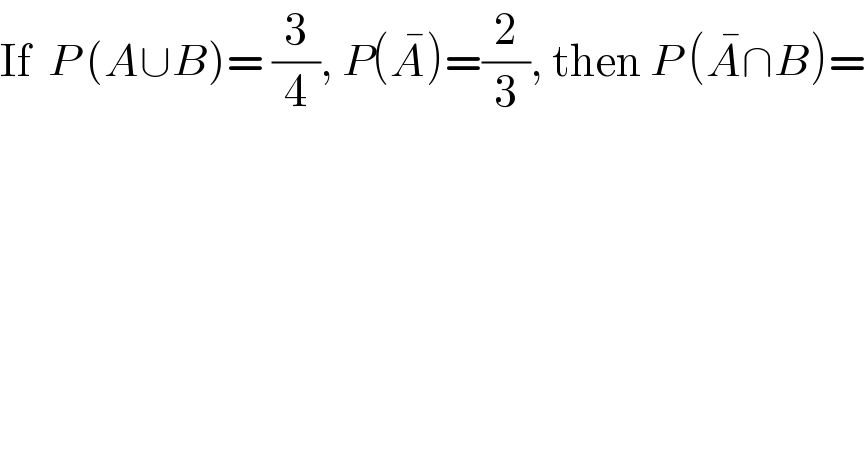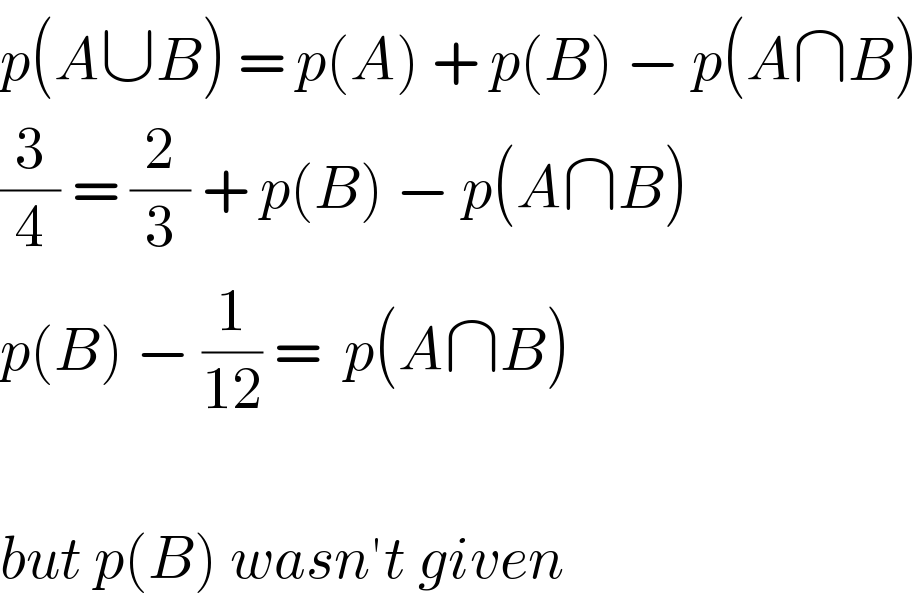
Question Number 48736 by Pk1167156@gmail.com last updated on 28/Nov/18

$$\mathrm{If}\:\:{P}\:\left({A}\cup{B}\right)=\:\frac{\mathrm{3}}{\mathrm{4}},\:{P}\left(\bar {{A}}\right)=\frac{\mathrm{2}}{\mathrm{3}},\:\mathrm{then}\:{P}\:\left(\bar {{A}}\cap{B}\right)= \\ $$
Answered by Abdulhafeez Abu qatada last updated on 28/Nov/18

$${p}\left({A}\cup{B}\right)\:=\:{p}\left({A}\right)\:+\:{p}\left({B}\right)\:−\:{p}\left({A}\cap{B}\right) \\ $$$$\frac{\mathrm{3}}{\mathrm{4}}\:=\:\frac{\mathrm{2}}{\mathrm{3}}\:+\:{p}\left({B}\right)\:−\:{p}\left({A}\cap{B}\right) \\ $$$${p}\left({B}\right)\:−\:\frac{\mathrm{1}}{\mathrm{12}}\:=\:\:{p}\left({A}\cap{B}\right) \\ $$$$ \\ $$$${but}\:{p}\left({B}\right)\:{wasn}'{t}\:{given} \\ $$
